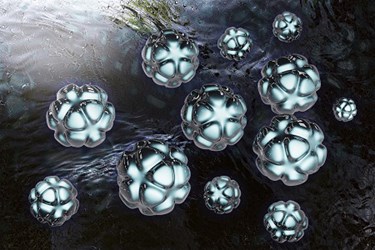Research Shows Nanoparticle Drug Delivery May Harm Brain

While nanoparticles are being designed with the hopes of delivering drugs to target locations, new research suggests that drugs delivered to the brain through nanoparticles called micelles might be more harmful than good.
Scientists found that micelles with a positive charge on their surface seem to cause damage once they reach the brain. Kristina Bram Knudsen, a toxicologist at the National Research Centre for the Working Environment in Copenhagen, and colleagues investigated two types of micelles containing a positive or a negative surface charge in rats. They found that three out of five rats injected with the positive charged micelles showed brain lesions one week after the administration. The rats which received negatively charged micelles did not show any signs of harm from the injections. The scientists’ findings are scheduled to be published in a future issue of Nanotoxicology.
Knudsen said she thinks the micelles’ presence in the cell or the change of the cell’s surface charge may impact its normal functions. Other research suggests that negatively charged nanoparticles may enter cells less readily, unlike positively charged nanoparticles.
Biomedical engineer Jordan Green of Johns Hopkins University in Baltimore, Maryland, said that Knudsen’s research findings are intriguing but advised caution in jumping to conclusions regarding the general behavior of positively charged nanoparticles. Pharmaceutical expert Jian-Qing Gao of Zhejiang University in Hangzhou, China, said that other factors such as the size and concentration of the particles may have influenced the study results.
Recently, scientists from the University of Georgia announced that they have discovered a way to enhance cancer chemotherapy drug cisplatin 17 times through the use of nanoparticles. The re-engineered drug targeted the cancer cells’ mitchondria to effectively halt their growth and spread. Another study from a team at the University of North Carolina showed that nanoparticle drug carriers effectively delivered doses of cancer drug wortmannin to the brain. Pharmacologic challenges have previously contributed to the drug’s failure in clinical trials. Through its nanoparticle form, the drug was shown to be more stable and effective while having less toxicity.
While these findings suggest benefits of using nanoparticle drug carriers, conclusive research about their safety and impact on the human brain is yet to be achieved.
